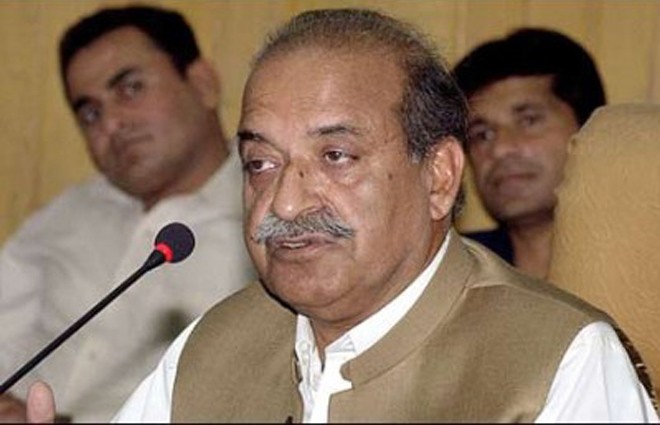
Sardar Mahtab Ahmad Khan says the KP government strongly favours reforms in Fata

Disputing the accusation that he was against reforms in Fata, Khyber Pakhtunkhwa Governor, Sardar Mahtab Ahmad Khan, reminded that one of his first steps on taking charge of his office was to set up the Fata Reforms Commission under former chief secretary, Ejaz Qureshi, with comprehensive terms of reference to propose administrative and political reforms. "We will be fooling ourselves if we say there is no need for reforms in Fata. However, we need to benefit the tribal people who have remained deprived and have suffered so much," he stressed.
The Governor said the Ejaz Qureshi Committee was asked to suggest short and long-term administrative reforms to improve governance and strengthen accountability. "Bad governance has been our fate. The civil administration has become weak. We felt there was need to build relationship of trust between the government and the people by ensuring honest spending of public funds, enforcing merit in recruitment, and placement of officials, giving preference to the tribal people in jobs and ensuring multi-sectoral development," he argued.
Sardar Mahtab said judicial reforms have been proposed to supplement administrative reforms. He said judicial officers were being appointed in the political administration of tribal agencies to work as civil judge to focus on provision of justice to the people.
He pointed out that about two million people totalling 40 per cent of Fata population is still displaced and suffering. "We gave priority to repatriating the displaced families and have already rehabilitated a large number of IDPs," he added.
According to the Governor, efforts were made by past governments, such as those led by late Zulfikar Ali Bhutto, to undertake political reforms in Fata. "All these initiatives were inconclusive. Even the Ejaz Qureshi Committee that I set up didn’t give any conclusive recommendations with regard to political reforms," he said.
He said the foremost need in Fata is to restore peace and repatriate and rehabilitate the IDPs by reconstructing the damaged infrastructure. "With regard to amending Article 247 of the Constitution and deciding the future status of Fata, we ought to ascertain the views of the tribal people through jirga, referendum or whatever other means that is acceptable. From Bajaur to South Waziristan, it is our moral and democratic responsibility to seek the opinion of the tribal people and their elders before deciding their fate," he maintained.
Read also: "Ballot is the best way to let tribal women take part in decision-making," says Ayesha Gulalai Wazir